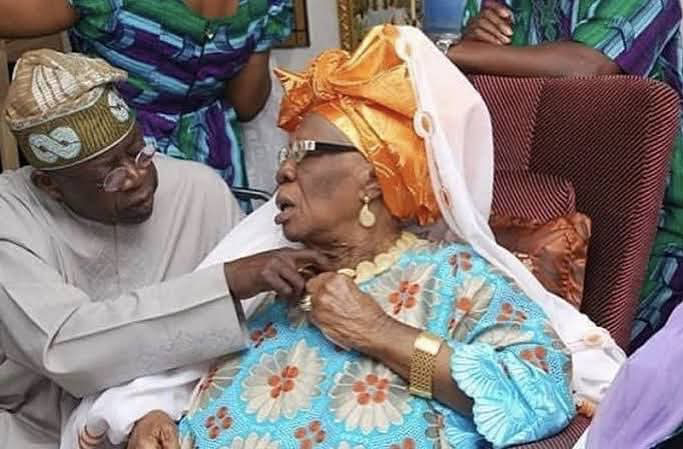Jamiu Abiola, the Senior Special Assistant to President Bola Tinubu on Linguistics and Foreign Matters and son of the late Chief MKO Abiola, has shared previously little-known details about the role played by Tinubu’s mother, Alhaja Abibatu Mogaji, during the June 12 political crisis. His comments, According to THE PUNCH on June 28, 2025, shed light on the personal sacrifices made by individuals outside the political spotlight.
Alhaja Abibatu Mogaji, a prominent leader of market women in Lagos State, reportedly took a bold stand following the annulment of the June 12, 1993, presidential election. According to Jamiu Abiola, she personally petitioned the then military ruler, General Ibrahim Babangida, urging him to reverse the annulment of the election believed to have been won by her son’s close ally, Chief MKO Abiola.
In what was described as a deeply emotional and symbolic act, Alhaja Mogaji publicly removed her headscarf while pleading with General Babangida. This moment, which took place in Abuja, was seen by many as a powerful gesture of protest and humility, and has remained etched in the memories of those who witnessed it.
According to him, “In one of the lesser-known but deeply symbolic acts, she reportedly removed her headscarf in public while pleading with Babangida, an emotional gesture captured in photographs and remembered by many in Abuja at the time”.
Jamiu Abiola noted that he had met her on multiple occasions and was always struck by her unwavering commitment to the ideals of justice and democracy. He praised her as one of the unsung heroes of the pro-democracy movement, whose actions carried significant weight even though they often went unrecognized in mainstream political narratives.
He also highlighted that more individuals like Alhaja Mogaji and her son, Bola Tinubu, were critical during the fight to restore democracy in Nigeria. Their contributions, according to him, were instrumental in mobilizing resistance and sustaining momentum during one of the most turbulent political periods in the country’s history.



Post a Comment